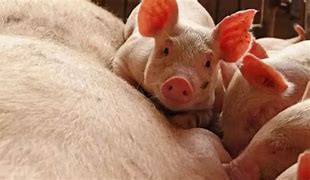The UN’s Food and Agriculture Organisation (FAO) has launched an innovative online course aimed at empowering veterinarians and smallholder pig producers to combat African swine fever (ASF) in southern Africa.
The course, which is based on the FAO’s 2023 guidelines titled “African Swine Fever Prevention, Detection and Control in Resource-limited Settings,” addresses the unique challenges faced by pig producers in preventing and controlling ASF amid resource constraints.
The Harare-based FAO regional office for southern Africa said Monday that the first online course for the region was delivered from May 10 to June 21, with 81 participants from Botswana, Eswatini, Malawi, Mozambique, Namibia, South Africa Tanzania, Zambia and Zimbabwe taking part.
“The southern Africa region is endowed with large numbers of pigs, with Angola, Malawi and Mozambique each recording over two million heads,” the regional office said in a statement.
It noted that the pig population in the region was growing at the rate of more than six percent per year, the highest growth rate compared to other species of livestock.
“Unfortunately, the presence of African swine fever, the most feared pig disease, constitutes a major challenge to production and market access for the smallholder producers in resource-limited settings.”
Rome-based FAO animal health officer Andriy Rozstalnyy said resource-limited settings present unique barriers to the prevention and control of ASF, with methods for prevention, detection and control recommended for higher resource settings being inappropriate or impossible to implement.
“The training course builds on experiences from Africa and elsewhere to provide participants with information and methods that could improve prevention and control of ASF in resource-limited settings,” said Rozstalnyy who is coordinating FAO’s global efforts in the prevention and control of ASF.
The online training was conducted by Mary-Louise Penrith, an international expert on ASF.
JN/APA


